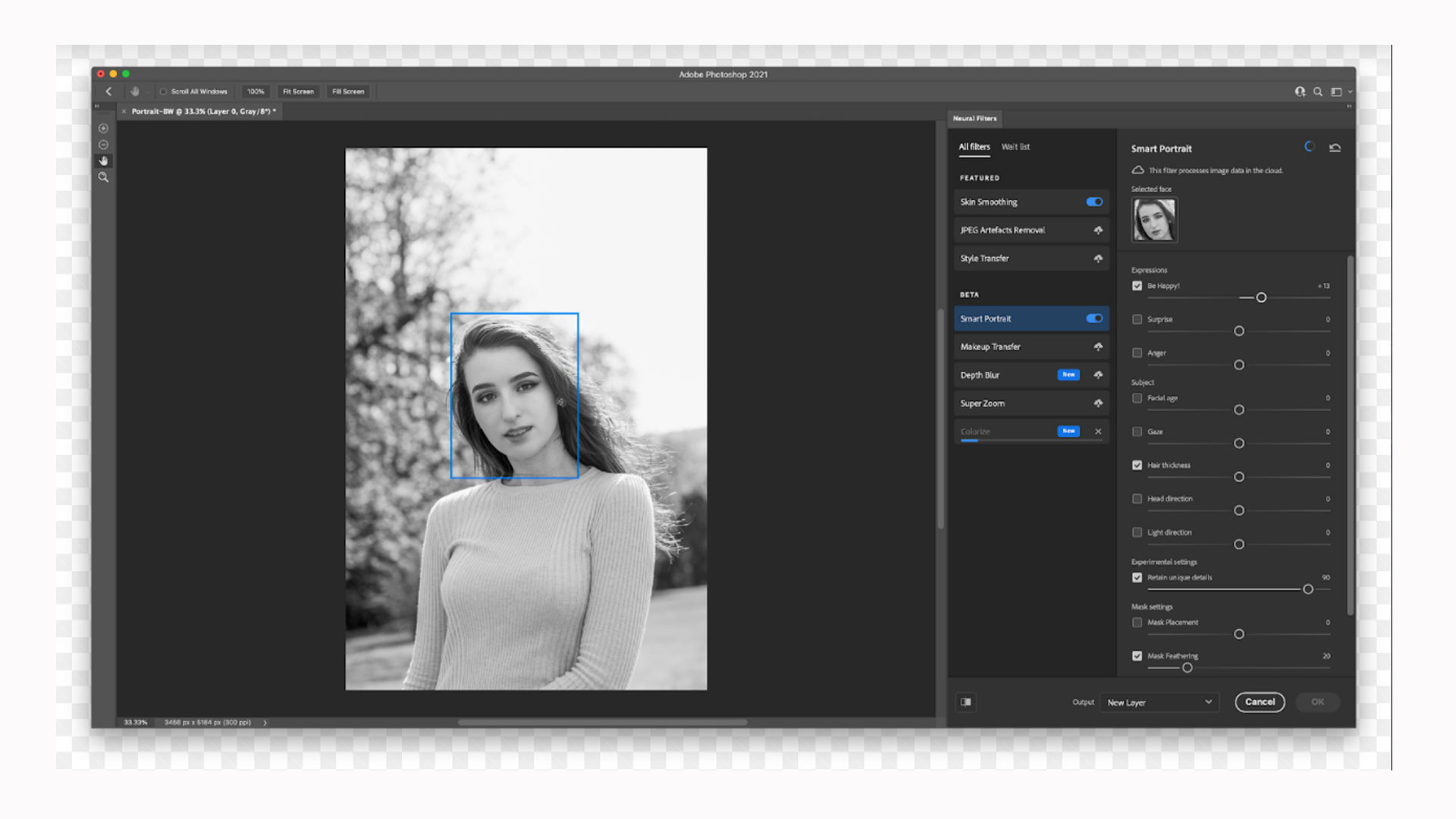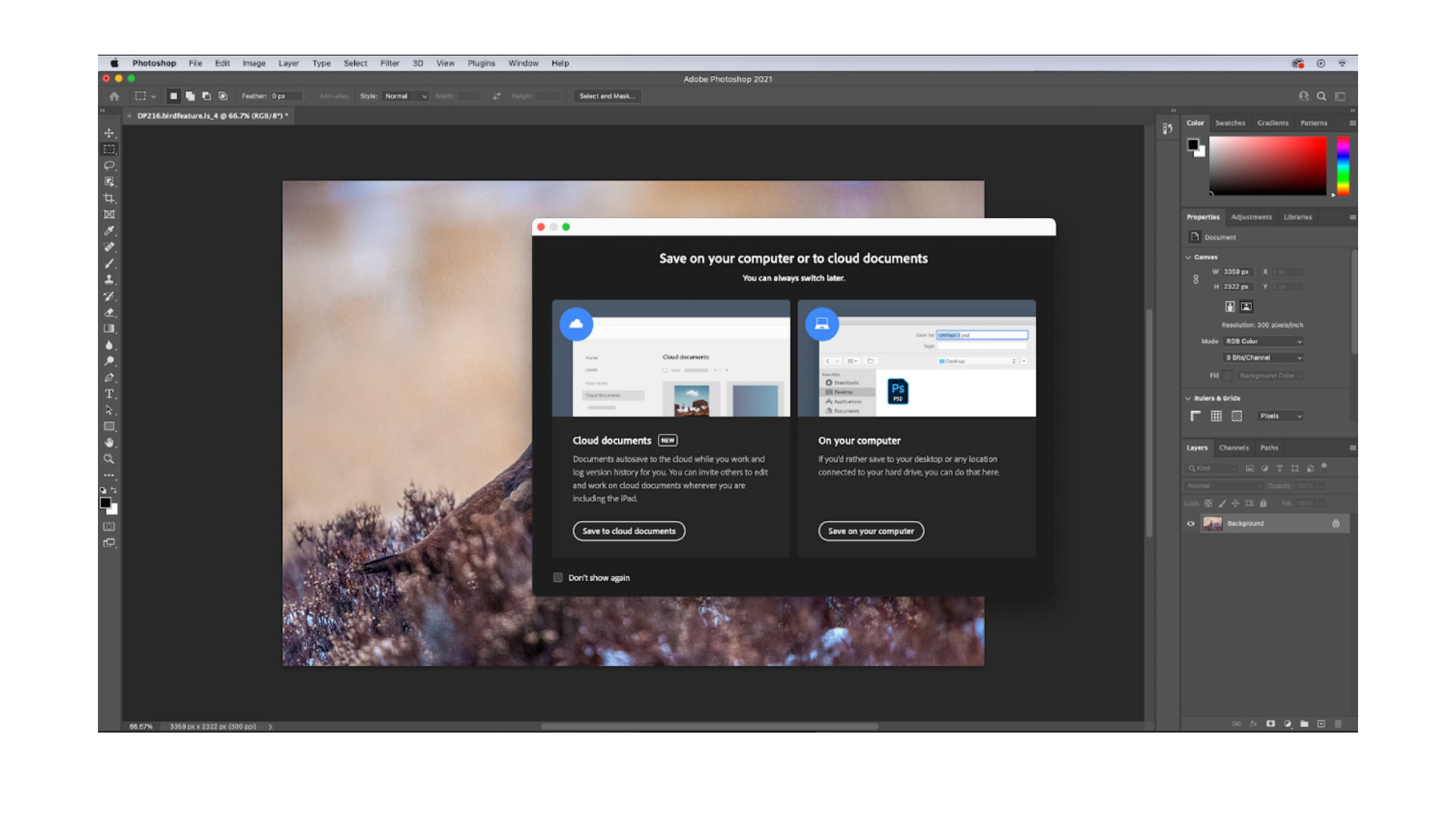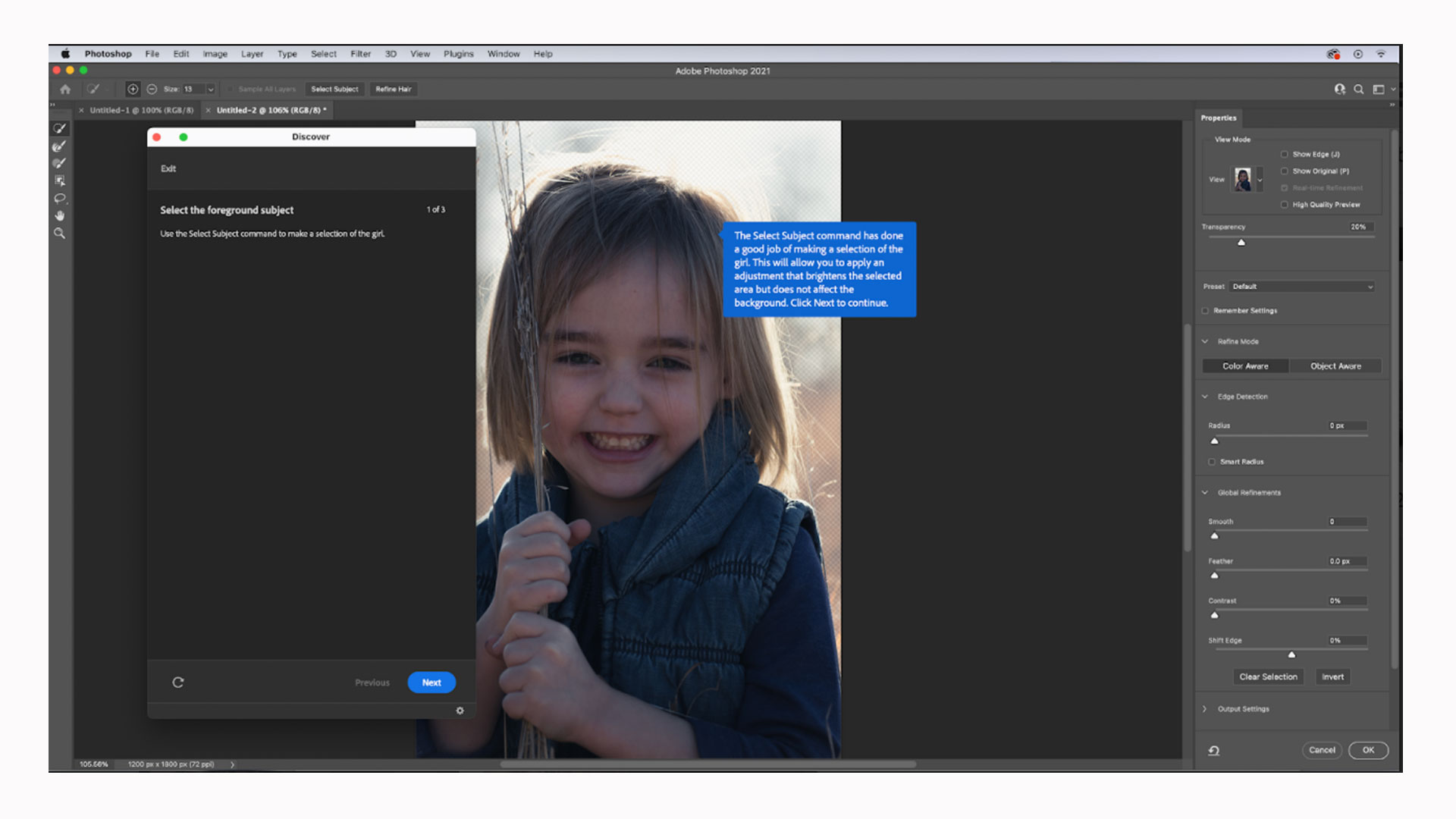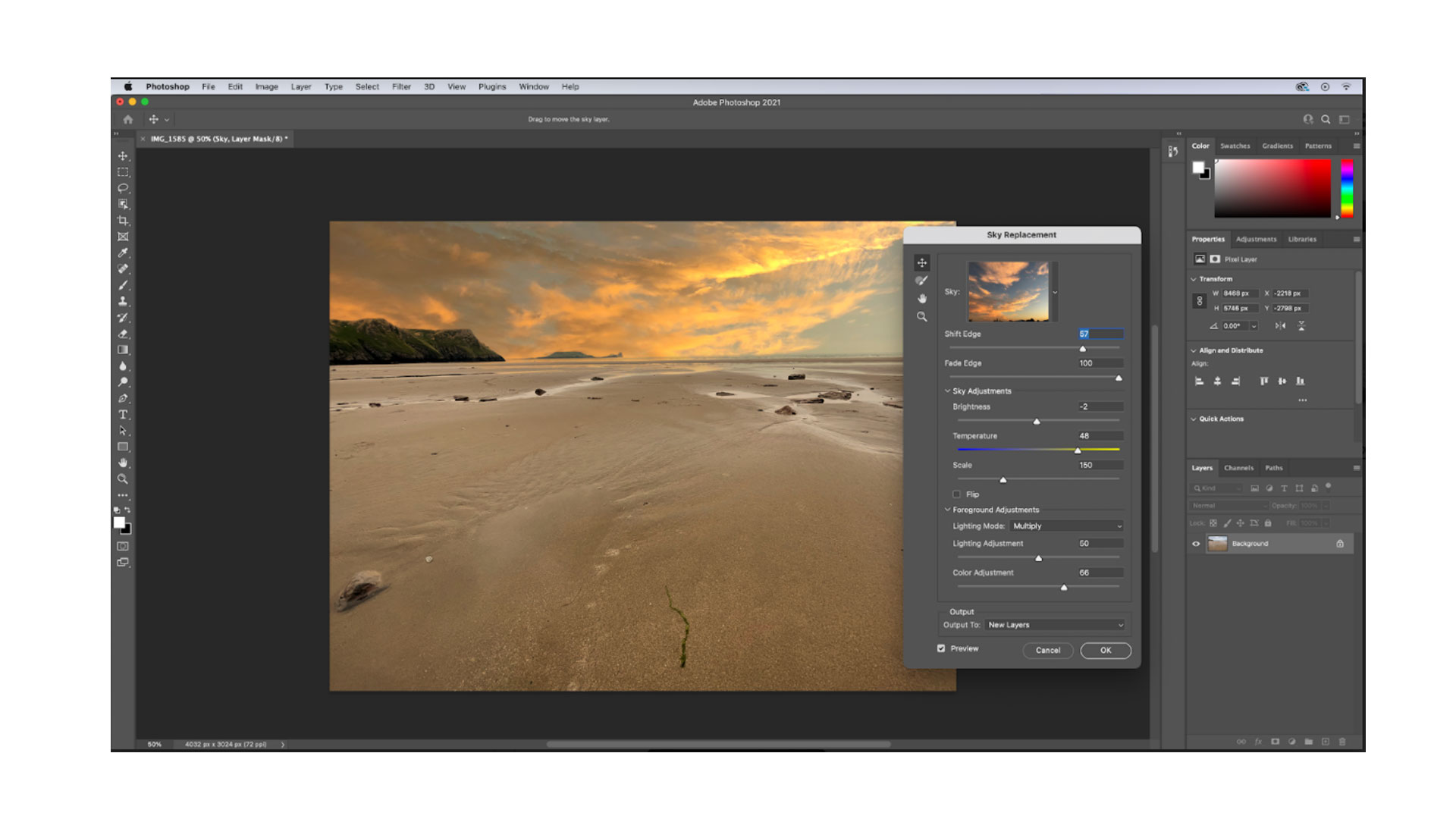Space Verdict
The latest AI-powered version of Photoshop is still the ultimate choice for photo processing and digital artistry, but there are simpler alternatives for hobbyists.
Pros
- +
Sky replacement tools work effectively
- +
Strong mobile and web design tool
Cons
- -
Neural filters are a bit weird
- -
Only available with a subscription
- -
Complex interface to learn
Why you can trust Space.com
Adobe Photoshop has been offering users cutting-edge digital image manipulation tools for the best part of 30 years. And while there’s no denying the show-stopping power it still offers, its market-leading status is being challenged by the likes of Affinity, Luminar, and Adobe’s own sibling Lightroom.
Since its inception, the software has been touted as one of the best photo editing apps available, but it's now only accessible via a subscription service. While this alienates those who would rather pay for their software upfront, the advantage of this model is that users get the latest version and features every time they are released, rather than having to pay any upgrade fees.
The latest version of Photoshop CC 2021 dropped in September, bringing with it some genuinely cool new features, alongside the company’s Sensei (artificial intelligence) technology which promises to perform edits in the cloud and automate mundane tasks.
Most users turn to Adobe Photoshop to process their photographs, but the software is also a brilliant offering for digital artists, website and graphic designers, plus video editors too, thanks to its complex handling of file types, layers, and compatibility with other Adobe programs.
So good is Photoshop at allowing users to manipulate images that it’s been given its own term, Photoshopping. This has some negative connotations, sure, but it also goes to show how powerful and ubiquitous the software is both for professional industry users and consumers. Let’s delve into some of the latest features and see how the 2021 Creative Cloud version brushes up for both newbies and loyal fans.
- Related: Astrophotography for beginners
Adobe Photoshop review: Features
- Clever sky replacement options
- Neural filters are still in beta
- Sharing and saving options via the cloud
Adobe Photoshop CC 2021 boasts several headline additions, but for new users, it’s worth stating what hasn’t changed and still works brilliantly for enhancing and manipulating photos. Photoshop’s basic editing functions such as blur, sharpen, erase, and clone will satisfy hobbyists, and for complex graphics editing, there are layers, selections, and extra channels.
Moving to the latest tools, Adobe is making big noise about the development of Sensei AI technology, which is designed to speed up editing tasks. One of the latest Sensei-powered tools is Neural filters, a panel accessed from the main menu that offers one-click edits using information from the Cloud. In this panel, you’ll find a list of Al filters which need to be downloaded from the cloud first, plus a wait list – nice-to-have tools that are planned for later releases.
Breaking space news, the latest updates on rocket launches, skywatching events and more!
As well as an updated list of supported cameras and lenses, the improved Sky Replacement feature makes it easy and effective to swap out bland skies for dramatic ones. Neural filters is a new workspace which enables users to enhance skin, add expressions to portraits, and more.
The featured filters include Skin Smoothing, JPEG Artefacts Removal, and Style Transfer, plus many more that are currently listed as Beta options, such as Smart Portrait. It looks as if there’s a lot to please retouchers or portrait photographers, however, the results we got were a mixed bag.
When we tried adding a smile with the Smart Portrait filters, for example, the teeth ended up looking like a creepy caricature. This isn’t surprising, as the Neural filters work by adding new pixels that weren’t there in the original image. Given how machine learning works, it’s likely these Beta filters will improve in time and with more testing. And of course, all edits are non-destructive, so you can easily remove an effect you don’t like.
Another Adobe Sensei offering, which was updated in August 2021, is the Sky Replacement feature. While it’s always been possible for landscape photographers to create drama in their scenes by blending in a new sky in Photoshop, in the past, this involved careful and time-consuming masking. Sky Replacement is definitely not in Beta mode, and the results are incredibly convincing, in part thanks to the ability to fine-tune the lighting so that the foreground tones match the sky. In all of our experiments, the software did a great job of finding the horizon line and masking features such as cliffs; it’s genuinely surprising how easy it is to transform a landscape shot on a dull day into something more inspiring, which will be a boon to generation Instagram or hobbyists who don’t want to faff around.

At times, Photoshop is a complex piece of software to get to grips with, but newer Photoshop users – or those who just want to improve – can make great leaps by using the Learn section of the home screen. When you click on a hands-on tutorial, you’ll then be guided in real-time through the editing process required for a host of different skills to make easy work of retouching, adding shapes, combining images, and other essential creative techniques.
Photoshop Express for mobile devices and tablets offers more fun editing features than its full desktop counterpart. The app's home interface has five buttons: Edit, Mix, Collage, Retouch, and Capture. Editing tools include standard adjustments like Exposure and Sharpness, plus Themes, Stickers, and Looks, a tab that works similarly to Presets in Lightroom.
Mix allows users to work with blending layers and cutouts (the app does a surprisingly good job at recognizing subjects), while Retouch is solely for improving portraits (and selfies). For a free photo editor, there’s certainly a lot going on, which is not a bad thing.
Formats: iOS and Android
Although Adobe Photoshop CC is available as a standalone subscription, buying it as a package with Lightroom CC will revolutionize the workflow of many modern photographers. The two programs are designed to work together in the Cloud, and when you open Photoshop, it’s possible to open up and work on images saved in Lightroom. These Cloud documents also save automatically as you work, too, so if you want to switch to mobile or iPad editing on the go, the files are already there waiting for you. In the same way, working collaboratively on images with clients, friends or coworkers is easy; simply send them an invite with a quick and automated email invite from the main window.
While it’s impossible to review all of Adobe Photoshop CC’s features, the layout and interface remain as rich as they've ever been, and the tools just as industry-leading. While some of the AI edits do need some time to develop, provided you’ve got a powerful enough machine (see Compatibility section) to run Photoshop, you should be impressed by how smooth the editing actually is.
Adobe Photoshop review: Compatibility and plugins

Adobe Photoshop should only be downloaded onto a powerful machine – that’s a minimum 8GB of RAM and 4GB of available hard-disk space. You’ll also need at least a 1280 x 800 resolution display.
In terms of operating systems, it’s available for Windows 10 (64-bit) version 1809 onwards, and macOS Mojave (version 10.14) or later. Adobe Photoshop is also available as an app on Apple’s iPad.
Adobe Photoshop review: Price and subscription options

Adobe Photoshop is only available with a monthly or annual subscription plan, but this does include updates to the latest version as soon as it is released.
You can get Photoshop as part of Adobe’s Creative Cloud Photography plan or the Photoshop Single App plan, both of which differ slightly.
Bought on its own as a subscription, Adobe Photoshop (which includes the desktop and iPad versions, 100 GB of cloud storage, Adobe Fresco, Adobe Portfolio, Adobe Fonts and Adobe Spark) costs $22.99 per month.
The Creative Cloud Photography plan includes Lightroom, Lightroom Classic, Photoshop on desktop and iPad, and 20GB of cloud storage –all for $9.99 a month. Adobe also offers a free 7-day trial.
Should you buy Adobe Photoshop?
If you work with images in any capacity as a professional, you should definitely have Adobe Photoshop in your arsenal. It’s the best image editor out there, even if it has a few random features and new Neural filters that some users will never touch.
Landscape photographers looking to jazz up their scenes will benefit from the Sky Replacement tools, while commercial designers and shooters should find the option to invite others to edit images genuinely helpful.
It’s easy to get overwhelmed by Photoshop’s interface, so if you’re a hobbyist starting out with image processing and want an easier learning curve, take a look at Skylumm’s Luminar AI and Affinity Photo as alternatives.
Adobe Photoshop is market-leading when it comes to transforming single images, but won’t clear up a chaotic system or help you to organize files on your computer and drives. Take advantage of Adobe’s Photography Plan and use it alongside Adobe Lightroom to establish a sensible storage workflow.

Lauren is a photographer, writer and editor based in the Cotswolds, UK. An experienced journalist who has been covering the industry for over ten years, she's equally adept at putting the latest camera through its paces or learning a creative shooting technique and then passing that knowledge on in an accessible way. Lauren holds a degree in Natural History Photography and has plenty of real-world experience in a variety of disciplines, from astrophotography to wildlife, weddings, and even commercial portraiture. Lauren is the Managing Editor of Digital Camera World, having previously served as Editor of the global publication Digital Photographer, a practical-focused magazine that inspires hobbyists and pros alike to take phenomenal shots and get more from their kit.

